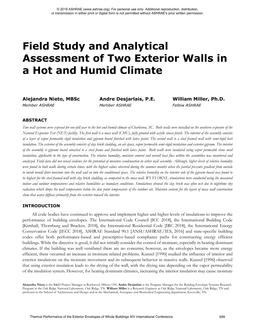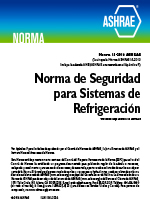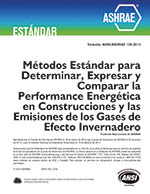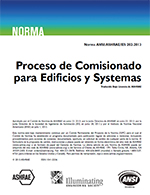Description
Two wall systems were exposed for one-full year to the hot and humid climate of Charleston, SC. Both walls were installed on the southern exposure of the Natural Exposure Test (NET) facility. The first wall is a mass wall (CMU), fully grouted with acrylic stucco finish. The interior of the assembly consists of a layer of vapor permeable rigid insulation and gypsum board finished with latex paint. The second wall is a steel framed wall with semi-rigid batt insulation. The exterior of the assembly consists of clay brick cladding, an air space, vapor permeable semi-rigid insulation and exterior gypsum. The interior of the assembly is gypsum board attached to a steel frame and finished with latex paint. Both walls were insulated using vapor permeable stone wool insulation, applicable to the type of construction. The relative humidity, moisture content and overall heat flux within the assemblies was monitored and analyzed. Field data did not reveal evidence for the potential of moisture condensation in either wall assembly. Although, higher levels of relative humidity were found in both walls during certain times, with the highest values observed during the summer months when the partial pressure gradient from outside to inside would drive moisture into the wall and on into the conditioned space. The relative humidity on the interior side of the gypsum board was found to be highest for the steel framed wall with clay brick cladding, as compared to the mass wall. WUFI ORNL simulations were conducted using the measured indoor and outdoor temperatures and relative humidities as boundary conditions. Simulations showed the clay brick was often wet due to nighttime sky radiation which drops the wall temperature below the dew point temperature of the outdoor air. Moisture content for the layers of mass wall construction show that water diffuses primarily from the exterior toward the interior.
Citation: Thermal Buildings XIV 2019
Product Details
- Published:
- 2019
- Number of Pages:
- 10
- Units of Measure:
- Dual
- File Size:
- 1 file , 1.4 MB
- Product Code(s):
- D-Bldgs19-075




